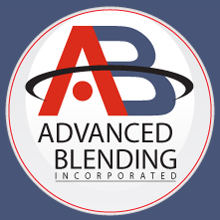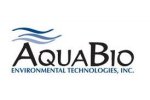Opportunity to Update Knowledge and business Career
NC Cooperative Extension Program
EPA Releases Draft Strategy for Clean Water
AmSolvChina will offer education opportunity for those persons who involve Water Shed, Water Quality, Storm Water, and Waste Water Poluttion Management or Operation to update their knowledge with validate certificate. To be one of member, we will work out NC Wake County Cooperative Extension Center to offer the knowledge what you want to learn. Wake County Center Cooperative Extension is an educational partnership helping people put research-based knolwedge to work for economic prosperity, environmental stewwardship, and an improved quality of life. NC Wake County Cooperative Extension Center partners involved as the following parties:
NC State University,
NC A&T State University,
U.S. Department of Agriculture
Local, State, and federal governments
Private business
Agribusiness
Youth and health foundations
Individual
If you are interesting this co-education program, Please contact with us.
Genotech@AmsolvChina.com
EPA Releases Draft Strategy for Clean Water
EPA is inviting the public to comment on the agency’s draft strategy to protect and restore our nation’s lakes, streams and coastal waters. The strategy, “Coming Together for Clean Water: EPA’s Strategy for Achieving Clean Water,?is designed to take the next leap forward in furthering EPA Administrator Lisa P. Jackson’s key priority of protecting America’s waters.
EPA’s strategy was developed by considering input and ideas generated by approximately 100 clean water leaders who discussed two priority areas, healthy watersheds and sustainable communities, and shared their perspectives on how to advance the EPA’s clean water agenda. EPA is now inviting the public to consider and provide their comments on the approaches outlined in the strategy.
Public comments on the draft strategy should be submitted by September 17. EPA will review all comments and post a final strategy later in the year.
More information on the draft strategy and to comment: http://blog.epa.gov/waterforum/
EPA to Hold Listening Sessions on Potential Revisions to Water Quality Standards RegulationThe U.S. Environmental Protection Agency (EPA) will hold two public listening sessions on potential changes to the water quality standards regulation before proposing a national rule. The current regulation, which has been in place since 1983, governs how states and authorized tribes adopt standards needed under the Clean Water Act to protect the quality of their rivers, streams, lakes, and estuaries. Potential revisions include strengthening protection for water bodies with water quality that already exceeds or meet the interim goals of the Clean Water Act; ensuring that standards reflect a continued commitment to these goals wherever attainable; improving transparency of regulatory decisions; and strengthening federal oversight.
Water quality standards are the foundation of the water quality-based approach to pollution control, including Total Maximum Daily Loads and National Pollutant Discharge Elimination System permits. Standards are also a fundamental component of watershed management.
The public listening sessions will be held via audio teleconferences on August 24 and 26, 2010, from 1 p.m. to 2:30 p.m. EDT. At the sessions, EPA will provide a review of the current regulation and a summary of the revisions the agency is considering. Clarifying questions and brief oral comments (three minutes or less) from the public will be accepted at the sessions, as time permits. EPA will consider the comments received as it develops the proposed rulemaking.
EPA will also hold separate listening sessions for state, tribal and local governments.
EPA expects to publish the proposed revisions to the water quality standards regulation in summer 2011.
More information: http://www.epa.gov/waterscience/standards/rules/wqs/listening.html







